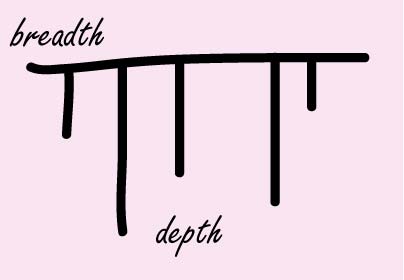 |
| Yep. That's a warehouse. Pretty huh? |
It's been a massive, massive year. Work has been great and exhausting. I have probably developed personally more this year in my career than any other. I have had the opportunity to work on lots of things I have never done before and learnt massively as a result. I have worked with some fantastic people who have helped me grow, develop and challenge the way I do things and I'm very grateful for that. I haven't had that in my career for a very long time.
That's all positive. But it has come at a cost. Lots of travel and time away from home. I became a platinum frequent flyer recently with Qantas and I'm not sure it's an event I should be excited about. Some of the things I have worked on during the year have been stressful and completely the opposite reason to why I work in HR. But I guess you get that.
The weeks leading up to Christmas were spent travelling and recovering from traveling and I'm pooped. Completely and utterly pooped. Usually I'm good at recognising I'm tired and do some things to help. Exercise is a good thing. Some weeks I manage to ride my bike to work one or two times and I usually try to walk a few times in the evenings. The week before Christmas? Rode my bike to work once, one way. That's 10kms. Training for the Tour de France, not. I also managed one walk and spent the whole time thinking about how tired I was. Ugh.
Sleep is also a good thing when you are tired. Being completely jet lagged for at least 2 weeks of December has meant I have been at the mercy of my completely mucked around body clock. By the time I finished work for the Christmas/New Year holiday I had decided to pursue afternoon naps every day.
My temptation is to have a big whinge. Having a whinge is a great Aussie past time and can be cathartic but there is a point where whinging just starts to make you feel worse. So I'm not. I'm going to tell you all the great things 2013 brought in terms of my career;
- I had the opportunity to get better at some things I'm not very good at. How cool is that? If someone had asked me 18 months ago what were the 2 things I'm not very good at in terms of Human Resources I would have named the things that I have consistently worked on over this time. Was a great opportunity to round out my skills.
- I got to work with two people in particular who have regularly coached me, challenged me and generally help me be better at what I do. I have found people like this to be very rare. In my very first HR job I had a great manager who played this role and I still think back to his advice now. Since then and now I don't feel like I have much of that. Much of my career development has been because I have worked autonomously and had to work out stuff for myself or because I worked with some very challenging and difficult people. This was great career development but it's nice to have some people who are looking out for your best interests.
- I got to travel. So while I'm tired and need some time out, the travel I have done during the year has allowed me to meet and work with a greater cross section of people and challenged me to be the best when I'm tired and travel weary.
- I got to use some skills that I'm really good at. This year more than any other I have done lots of writing at work. Employee communications, announcements and was able to create a blog for our Leadership Development Program. Do what you love and love what you do. I also feel like I have been able to bring together lots of skills from across my career.
- I got to experience some things that made me better at work. Attending the Problogger conference on the Gold Coast was fantastic. So many inspirational and purposeful people all doing what they want to do and so willing to share their knowledge and experience. I'm sure this overflowed into my everyday work.
- I attended the OneDay NewWays conference. For the second year running Amanda Webb and her team at OneDegree HR put on this great day. Not only were the speakers inspirational and interesting, I was able to use my photography skills to provide a record of the day for OneDegree HR. My favourite speakers included Dr Jason Fox, Tanya Diesel and Yamini Naidu. I encourage you to attend next year.
- I attended the International HR Directors Forum Leadership conference, over 2 days in Bowral. I met some fantastic colleagues and learnt things that I was able to apply immediately. Return on investment realised!





































